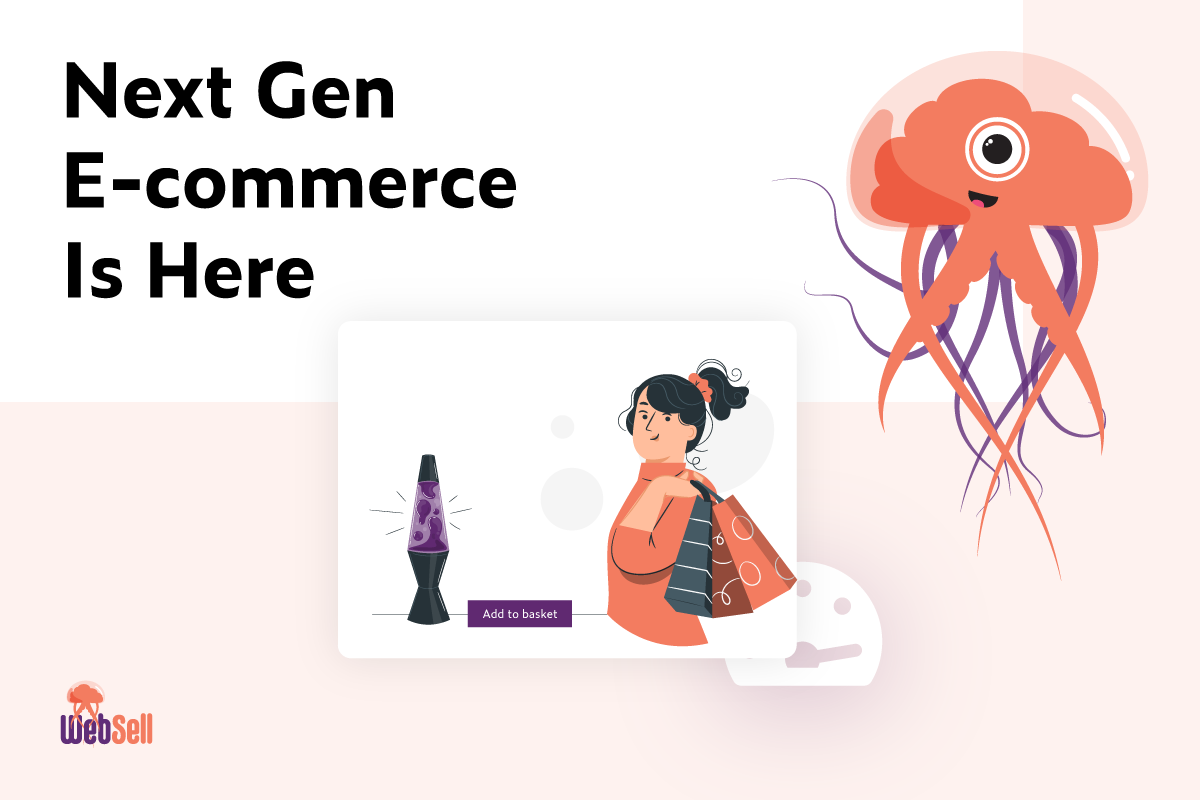If you own an e-commerce store, you know that the design of your website can have a major impact on your sales and customer experience. A well-designed website should be easy to use, modern, and attractive. According to a 2021 survey, 42% of people will leave a website due to poor functionality.
Unfortunately, many websites haven’t been updated in years, leading to outdated designs that don’t reflect the current state of online shopping. Without an updated site design, your marketing efforts might be wasted. Google now rewards well-designed sites that give customers what they want in as few clicks as possible.
But how do you know when your site is serving your customers sufficiently or when it needs a makeover? There’s a few different aspects to analyze your site under and it all comes down to how users are currently using your site. This is called user experience and it is vital to understand when looking to scale your online sales.
In this post we’ll show you how to tell when your site is in need of some web design TLC by introducing you to these concepts and showing you how web design can deliver them.
1. Your site is hard to use
The most important benefit of a website redesign is the user experience it provides. A good website should be easy to navigate so customers can quickly find what they’re looking for without getting frustrated. The three-click rule suggests that a user of a website should be able to find what they need in no more than three mouse clicks.
While that’s been somewhat debunked in recent times, the rule shouldn’t be ignored. Look at your site from the user’s experience and see how long it takes you to find what you need. If customers can’t find the product or category they want quickly, they’re likely to leave your site for good.
A lot of these issues can be solved with good website design such as placing your best sellers on the homepage or creating boxes for your top categories there. Think about your ideal customers and ask yourself if they’ll be able to find what they need quickly.
A great way to make sure your site is user-friendly is by testing it yourself—after all, if you can’t use it properly then neither will your customers!
2. You have poor search engine rankings
Design has a direct influence on your search engine rankings. When determining who to put in first place on search results pages, Google doesn’t just look at the written content on your site. UX plays a big part in ranking your site too. Not having a responsive design is one one of the top reasons why a visitor might leave your site, we’ll get into that more in the next point.
You also need to implement a strong SEO strategy throughout your site. This means making sure your pages are ranking for the correct keywords by placing those keywords in key places throughout your site like your on-page content, meta descriptions, and URLs.
SEO helps boost your visibility in search engine results pages (SERPs), which increases traffic to your site and ultimately leads to more sales. When designing or updating your website, make sure you include keywords in titles and throughout content so that it appears higher in SERP rankings. Also consider adding features like meta descriptions and image alt tags to further optimize your site for SEO purposes.
If you find you have poor search rankings then your user experience probably isn’t up to scratch. This can have a long-term impact on your online reach. If you run paid search ads for example, you might find Google lowering your ad score and increasing your cost per click.
So think about your SEO profile in your next website redesign and think about what keywords you need to rank higher for.
Bonus Resource: E-commerce SEO – The Complete Guide (2023)
Check out our complete guide to E-commerce SEO in 2023! You’ll learn about keyword research, on-page SEO, site architecture, and more!
3. Your website design isn’t mobile-friendly
In 2015 Google changed their algorithm to penalize sites that didn’t have a mobile-friendly website. This was due to more people searching on mobile devices than desktops. It was such a big shake-up that the SEO industry called it ‘Mobilegeddon’. Making your site mobile responsive is essential to success in e-commerce and has been for quite a while.
Mobile traffic now accounts for over half (59%) of all web traffic. It’s the most dominant source of traffic and if your site doesn’t look good on mobile then you’re probably missing out on traffic and sales. There’s a free test from Google you can use to see if your site is mobile-friendly here.
More people are using their phones to shop than ever before, so having a mobile-optimized website is essential for any e-commerce store owner. This means making sure images are sized correctly and buttons are large enough for users to click on easily from their phones. Mobile optimization also includes ensuring pages load quickly so customers don’t get frustrated waiting for content to appear on their screen.
4. Your website is too slow
The first issue with a slow website is that users may become frustrated with the loading time and “bounce” away from the website. Studies have shown that visitors are likely to leave a website if it takes more than three seconds to load. This means that potential customers may be lost if the website is not optimized for speed. Additionally, many search engines actually penalize websites with slow loading times by ranking them lower in their search engine results pages (SERPs). This further reduces visibility and limits access to potential customers. Your website redesign should focus on making your site faster and better for shoppers.
Another problem with slow-loading websites is that they may be seen as unreliable or untrustworthy. In today’s digital landscape, where everyone expects instant gratification, having a slow site can send out a message of incompetence or disorganisation. Customers may simply not trust your business if they feel like your brand cannot keep up with the times.
Finally, having a slow website can lead to missed opportunities for online sales. Not only will slower load times affect how quickly people view products, but it can also influence their decision-making process; buyers who wait longer for content are less likely to make purchases when compared to those who don’t have to wait at all. This means that businesses with a slow website could miss out on valuable sales just because of an issue easily solved through optimization and maintenance. slow load times are one of the primary reasons that customers abandon a checkout process.
5. Your site looks dated
An outdated website can have a major impact on online sales, as customers are often less inclined to purchase from sites that appear dated and out of touch with current trends. One of the main issues is that a website’s aesthetic appeal is greatly diminished when it fails to keep up with modern web design standards. A website’s navigation structure will suffer if it is not regularly updated, making it more difficult for the user to find what they are looking for. Additionally, users may be discouraged from engaging with the site if it does not include features such as optimized search functions or improved access to customer service and support.
The lack of modern features can also hurt an organization’s reputation in their industry. Consumers expect a certain degree of professionalism from websites, and outdated designs can quickly drive users away due to their lack of polish and quality. Furthermore, an older website signals to consumers that the business may not be as invested in staying up-to-date with technology as its competitors. This can lead customers to believe that the company is not providing the best possible services or products available on the market.
How do I fix my site?
For WebSell retailers, the best way to redesign your website in line with modern design trends is by upgrading your website to Next Gen. These are the fastest themes available on the WebSell e-commerce platform meaning your site will benefit from increase search rankings, site visits, and sales. Learn more below or speak to your account manager to discuss your redesign.
Next Gen: The Fastest Shopping Experience on the WebSell Platform
WebSell retailers can now get a hyper-fast online webstore with an intuitive user experience. Explore Next Gen E-commerce by WebSell.
Conclusion
In conclusion, there are many signs that will tell you it’s time for a website redesign. Use the tools available to you to check in on your site performance and see how user’s currently use your site. You might find some insights that will help shape your next redesign project.
There are many benefits associated with giving your e-commerce store’s website a redesign too. From creating a more user friendly experience for customers to improving SEO rankings and making sure pages load quickly on mobile devices, taking the time to update your website can pay off big time in terms of increased sales and customer satisfaction. So take some time to see if your site needs an overhaul—you won’t regret it!
-

Boost Your Business with Dynamics 365 and E-Commerce Integration
In the current digital era, businesses face the dual challenge of meeting escalating customer expectations while managing extensive inventory and facilitating seamless transactions across diverse sales channels. For organizations leveraging Microsoft Dynamics 365 Business Central as their Enterprise Resource Planning (ERP) system, the integration with an e-commerce platform can be a transformative strategy. This integration…
-

Why WebSell is Your Leading B2B and Wholesale E-Commerce Platform
B2B and wholesale businesses need more than just a standard e-commerce solution to stay competitive. They need a robust platform. This platform must handle the unique complexities of business-to-business transactions, including custom pricing and bulk ordering. It also should offer seamless integration and advanced account management. That’s where WebSell shines as a leading B2B e-commerce…
-

Your Guide to E-Commerce Holiday Readiness
For many e-commerce businesses, the holiday season is the most critical time of the year. As online shoppers gear up for holiday buying, your store must be ready to meet the increased demand and stand out in a crowded marketplace. This comprehensive guide provides the essential steps you need to take for your holiday e-commerce…

